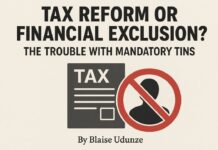By Niyi Jacobs
In 2024, Oando Plc’s 30th anniversary celebrations raised eyebrows within corporate circles, particularly regarding the lavishness of its year-end events in Port Harcourt and Abuja.
While some stakeholders applauded the celebrations as a sign of corporate resilience and a fresh start for the company, others questioned the appropriateness of the spending, given the company’s tumultuous financial history.
Oando’s journey to recovery has been anything but smooth. After facing a series of financial challenges, including a technical suspension from the Nigerian Stock Exchange in 2016, the company spent several years battling economic and operational headwinds.
By 2022, Oando was contemplating delisting from the NGX, reflecting its uncertainty about the future. However, the company’s turnaround in 2023, recording its first positive pre-tax profit since the crisis, sparked a new wave of optimism. This renewed hope continued into 2024, with the company’s stock price skyrocketing by over 500%, moving from N10.5 in December 2023 to N69.5 by December 2024.
Despite these achievements, Oando’s anniversary celebrations were met with mixed reactions. Critics argued that the company had not sufficiently communicated its recovery story, leading to confusion and disappointment among shareholders. Many felt disconnected from the company’s achievements, especially after years of losses and uncertain leadership. The lavish anniversary events, while intended to mark the company’s resurgence, were perceived by some as tone-deaf, particularly in light of ongoing concerns about Oando’s decision to delist from the NGX and the lack of dividend payments despite improved profits.
Oando’s efforts to restore profitability have not gone unnoticed, yet the company has struggled to bridge the gap between its financial recovery and shareholder sentiment. The failure to address key concerns, such as the delisting notice and unclear communication regarding future dividends, has led to tensions with minority investors. The anniversary celebrations, although a milestone, highlighted Oando’s failure to engage fully with its shareholders and communicate the significance of its recovery.
In conclusion, while Oando’s 30th anniversary could be seen as a celebration of resilience, it also serves as a reminder of the importance of strategic communication and transparency in corporate governance. As the company moves forward, it must address its unresolved issues, ensuring that its progress is not overshadowed by lingering doubts from its past. Only by rebuilding trust with its investors can Oando truly demonstrate that it has turned the page on its troubled history














